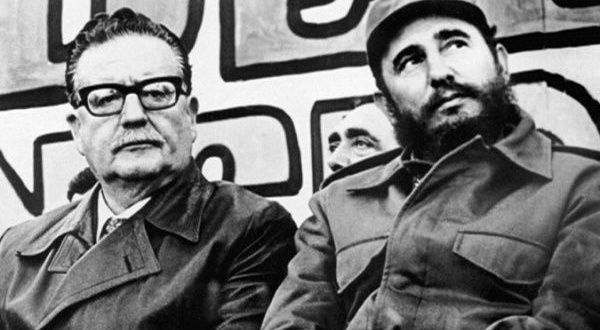Salvador Allende
Chile was a democratic country for nearly 150 years. Military coups were uncommon; they were commonplace in Latin America but not Chile. It was a real democracy for many years and there was a strong British influence there. Many Chileans were bilingual and would often travel to London. It was a very rich culture; I loved the country and the people, they were very industrious. But like any country, there was turmoil; economic, political, and cultural between different interest groups. Then came Allende.
- Jack Devine, former Director of the Latin American Division of the CIA
On November 3, 1970, Marxist leader Salvador Allende was elected president of Chile and was endorsed by both Fidel Castro and the USSR as diplomacy between communist states.
We fully supported his policy. We trained people for his personal security. We were experienced in this because we had to defend ourselves against those who wanted to destroy us. We told him about this because we thought he had enemies who might try to take his life.
-Fidel Castro, former President of Cuba

Caption: Fidel Castro (right) visiting Salvador Allende (left) in Chile, 1971 [Credit: TeleSur English]
Chile and the USSR, however, were not all that close.
Our trade with Latin America (Cuba apart) has been very modest, as well as irregular. When we lacked something, meat or grain for example, we made big purchases from Argentina. We also bought coffee and soya from Brazil. With Mexico, for example, there was never any major commercial exchange, and with Chile it was also very small. In 1969, Chilean-Soviet trade amounted to about US$ 300 thousand per year, and nearly always this was Chilean products bought by the USSR. In 1970, it rose to US$ 800 thousand and in 1971, US$ 8 million. The maximum commercial exchange with Chile, worth 28 million rubles, occurred in 1973 during Salvador Allende’s last year in power. Of this trade, a little over half were our shipments and a bit less than half were Chilean products (copper, wool and iodine) sent to the Soviet Union. In other words, we did not have economic reasons here to mobilize intelligence resources to defend Soviet interests. For example, the copper in the regions of Bolkhash, Dzhezkazgan and the Urals satisfied our national needs.
-Nikolai Leonov, Former KGB Agent in the USSR
Interview with Jack Devine, Former Director of the Latin American Division of the CIA and witness of the 1973 Chilean Coup [Video credit: National Archives]